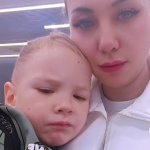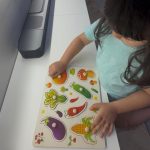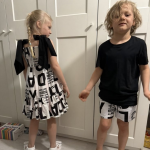From the Harmony of Sounds to Inner Harmony in Autism
Autism is a developmental condition characterized by a lack of social and communication skills, repetitive or stereotypical behavior, and either heightened or reduced sensitivity to sensory stimuli. It may also include motor and cognitive impairments, as well as attention deficits.
At the same time, music therapy has opened new possibilities for improving focus and addressing motor dysfunctions in autistic individuals. Music plays a significant role in enhancing movement control, building attention span, and stabilizing behavior, while also nurturing creativity. It helps stimulate speech development through singing, improves balance during dance activities, supports memory in learning theory-based subjects, and positively influences mood. As a result, patients become more emotionally expressive and more receptive to other psychological interventions focused on communication and social skills.
One of the primary goals of music therapy in autism is the development and improvement of speech through singing and playing musical instruments. Remarkably, children who previously could not speak at all often show faster progress than those who were already able to form short phrases or speak isolated words.
From the perspective of socialization, music therapy helps foster self-expression and teaches communication skills, enabling children to respond appropriately in social situations. To achieve this, group activities are often used, including listening to and performing music, as well as playing traditional games. Studies show that interacting with peers during such sessions improves attention and encourages dialogue—often supported by eye contact.
Music also helps autistic individuals better understand the emotions of others, at least the basic ones such as happiness, sadness, anger, and fear. Children learn to distinguish these feelings through background melodies that carry emotional cues and eventually begin to respond appropriately in real-life situations.
The overall outcomes of music therapy include:
• Improved concentration
• Better behavior, sound processing, cognitive function, and both verbal and sensorimotor skills
• Reduced anxiety and depression
• Enhanced ability to express emotions, thoughts, and needs
There is strong evidence that music therapy positively influences the condition of autistic individuals. However, it is not designed to eliminate autism itself. Instead, it helps ease its symptoms, playing a supportive role in the broader treatment process. The only approach currently known to address both the core condition and its manifestations is stem cell transplantation — a technique that was once considered experimental but is now widely accepted.
The core procedure in cell therapy involves the transplantation of the patient’s own stem cells, eliminating the risk of rejection. These cells have the remarkable ability to transform into various types of healthy cells, replacing the damaged ones. This leads to restored brain and nervous system function, normalization of behavior, reduction in symptoms, and accelerated development. The effects are long-lasting—often lifelong—and significantly enhance the results of additional therapeutic approaches.
The safety and effectiveness of cell therapy suggest that it may become the primary method of treating autism and its symptoms in the future. Today, it is offered by top medical centers around the world, including the Mardaleishvili Medical Center, known for being a leader in the application of transplantation in autism therapy. The center’s specialists are highly trained, experienced, and equipped with state-of-the-art technology. The cost of treatment is also lower than in comparable clinics abroad, and patients receive full assistance with travel, accommodation, and other logistical aspects of their rehabilitation stay.
Try cell therapy—and let music simply bring you joy!
Autism Treatment Center Videos
Autism treatment with own stem cells
Cord blood association congress
International Quality Crown
Autism Treatment Reviews
Autism treatment with own stem cells
The story of Alessandro (6 years old)
Autism Patient Testimonial - Stem Cell Treatment
Clients Testimonials

Lidiya — Elina’s mother Read More

Anna – Sasha’s mother Read More

Amirkhon’s father — Tokhir Read More

Dilana’s mother Read More

Irina and Stefan – Ilya’s parents Read More












